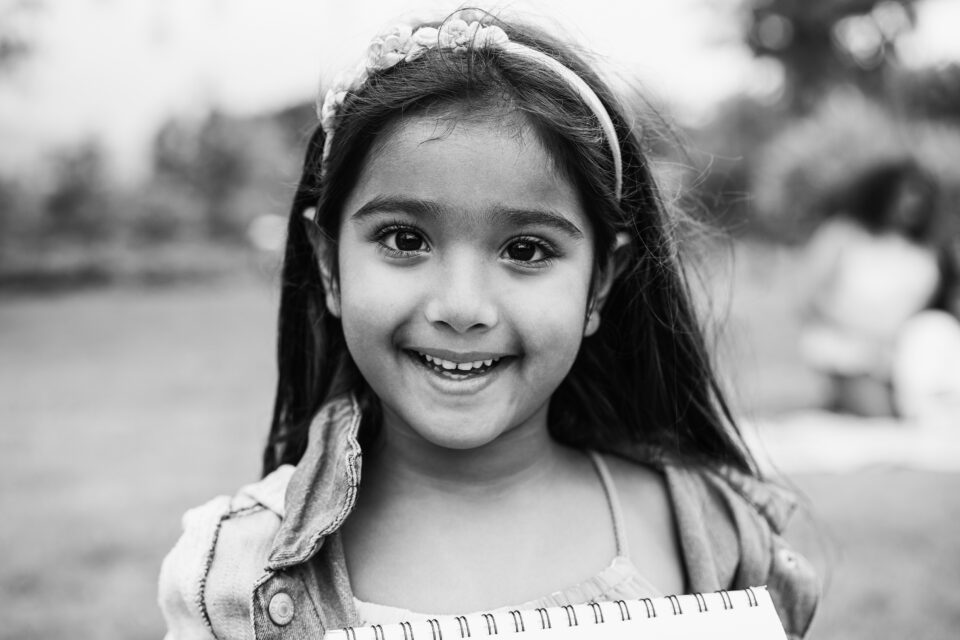Raising non-violent children should be the biggest priority for every parent.
Studies have shown raising a good child sets them up for a happy and healthy life. Though academic excellence is important, it is the attitude of a child that determines the graph of their life.
Research also shows that teaching a child the right way to regulate their emotions increases their chances of success and happiness. Emotional regulation is a quality that they are not born with but they learn from their parents and surroundings. Hence a child raised by a warm, responsive, and accepting parent with a close parent-child relationship grows up with balanced emotions. While a child who grows up seeing conflict and violent behavior can have a hard time understanding and regulating their emotions.
Here is how you can help your child learn the art of emotion regulation and teach them how to be non-violent.
Tips to raise non-violent children
Observe what they observe
Research says that a child’s aggressive behavior is often influenced by what they observe. Studies found that a child who is exposed to domestic violence or watches violent programs or shows on T.V. are more likely to exhibit violent behavior. Research has also shown that viewing violent acts on TV decreases empathy and sensitivity toward such acts.
Parents must make sure that their child is not exposed to any kind of violent outrage, whether it is at their home or in school. They should also closely monitor what a child watches on the internet or on television.
Keep an eye on the warning signs
Exposure to violence on any level can impact a child’s mental balance. You must learn to identify the warning signs to know if a child has witnessed or experienced violence. A sudden change in their behaviour like social withdrawal, frequent fights with their peers, expressing their feelings of guilt, and exhibiting low self-esteem.
If you witness any of these signs in your child then make sure to take the appropriate steps. You can seek professional help that will teach your child to control their anger. Also, talking to your child and fostering a safe and nurturing relationship can help them in regulating these emotions.
Discipline them in the right way
Disciplining your child is very important but doing it the right way is even more important. Many parents resort to shouting, rebuking, or abusing their children in order to discipline them. Research has shown the negative effects of harsh parenting.
It is important to understand that children are innocent and they tend to pick up what they see or hear. So, if they make a mistake, it is your opportunity to teach them the right way to behave. You can try positive authoritative parenting techniques which are shown to raise kids who are more resilient, kind, warm, and has better coping skills.
Solve conflict – the right way
Conflicts are very common among children, especially among friends or siblings. Parents should try to solve such conflicts without calling names or pinning the blame on one of the children. The motive should be to solve the conflict and to teach the children to behave the right way and demeaning a child is definitely not the right way to do that.
You can try talking it out with the child and make them feel safe and loved. The warmth and acceptance that a child gets can help them overcome the issues of anger or low self-esteem.
Control their screen time
Research has shown that a child’s high exposure to screen time can increase violent behavior in teens. Especially among those who engage in violent video games or binge watches shows that showcase or glamourize such behaviour.
The best solution is to regulate their screen time and encourage them to be engaged in other fun and lively activities. You can enroll them in activities like swimming, dancing, music, art, martial arts, and other activities. These activities not only help reduce their screen time but these activities are also meditative that promote calmness in children.
Teach them the power of pranayama and yoga
Childhood can be a tough time and many children can experience restlessness or anxiety during their growing years. The confusion and fear of the unknown can also lead to violent behavior in children.
Teaching your kid yoga and meditation, from a young age can help in developing emotional resilience and mental balance among children. Pranayama is also proven to balance a child’s emotions.
Tell them about your expectations
A child, especially at a young age, may not understand how to behave. Communicating with your child, and stating your expectations very clearly right from the beginning can help them regulate their behavior.
Whether you are going to the mall or sending your kid to school, tell them in advance what is expected of them. Also, make sure to reward them for their good behaviour and encourage them with your kind words.
Your Takeaway
Violence can be commonly seen among children, especially among teen boys, and very rarely among teen girls too. But this behavior of violence does not suddenly develop during teenage. It is rather rooted in their childhood. Hence, parents must take special care from a very young age to protect their child’s innocence and to prevent them from taking the path of violence.


1 comment
[…] happiness, contentment is not dependent on external validation. It springs from mindfully savouring the beauty in each […]